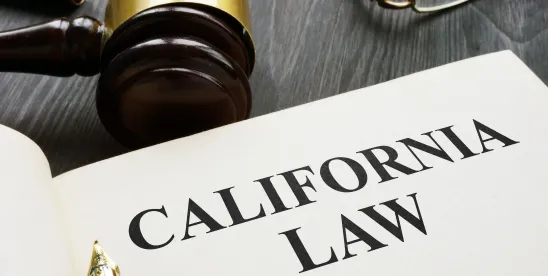Starting July 1, 2024, California will make it unlawful for businesses to add any automatic service charges onto consumer bills. Service charges are mandatory fees tacked onto bills (often for the provision of services in the hospitality industry) that customers have no discretion but to pay. In the past, California courts have found that businesses can lawfully use service charges, provided they give clear notice to employees and guests regarding the nature of such charges. Unlike tips, which businesses must fully distribute to employees, employers may keep service charges.
Quick Hits
- Starting July 1, 2024, a new California law, SB 478, will prohibit businesses from adding automatic service charges onto consumer bills.
- Other states and federal agencies may soon restrict, or prohibit, businesses from using automatic service charges.
California Governor Gavin Newsom signed Senate Bill (SB) No. 478 into law in October 2023, and recently, the California Attorney General’s Office released a set of answers to frequently asked questions (FAQs) regarding SB 478. The FAQs confirm SB 478 outlaws the use of service charges often used by hotels and restaurants.
According to the FAQs, SB 478 applies to the sale or lease of most goods and services for a consumer’s personal use, including those provided by hotels and restaurants. The FAQs explain that SB 478 requires businesses to include mandatory fees in advertised prices. This significantly impacts employers in the hospitality industry that have historically added these automatic service fees onto customer bills at the end of the service. Consumers can bring claims against businesses that violate SB 478, which can potentially result in $1,000 per violation penalties and other damages, including attorneys’ fees. The FAQs state, in relevant part:
- “Can a business comply with this law by disclosing additional required fees before a consumer finalizes a transaction? No. The price listed to the consumer must be the full price that the consumer is required to pay.”
- “Can a business comply with this law by advertising a price that is less than what a consumer will actually have to pay, but disclosing that additional fees will be added? No. The price advertised to the consumer must be the full price that the consumer is required to pay.”
- “What about mandatory fees charged by restaurants? If a restaurant charges a mandatory fee, it must be included in the displayed price. Under the law, a restaurant cannot charge an additional surcharge on top of the price listed. Gratuity payments that are not voluntary must be included in the list price.”
Within weeks of Governor Newsom’s signing SB 478 into law, the Federal Trade Commission (FTC) announced a proposed rule similar to SB 478 that would require businesses to include all mandatory fees in the price consumers see. For example, the rule proposes to prohibit hotels from using hidden “resort fees” or “cleaning fees.” Under the rule, restaurants would have to remove service fees or fees added to large parties. The rule would also give the FTC enforcement power to seek monetary penalties against businesses that do not comply with the regulations. The comment period for the FTC’s proposed rule closed in February 2024, but the FTC has not yet issued a final rule. The upcoming November elections will likely impact whether the FTC issues a final rule.
Looking Ahead
Even if the FTC’s proposed rule dies, it is likely other states will follow California’s lead in creating more consumer protective laws. Minnesota recently enacted legislation that bans the use of service charges but permits restaurants and hotels to use mandatory charges if there is clear and conspicuous disclosure of the charge and restaurants/hotels fully distribute any such charges to employees.
SB 478 is a noteworthy new law for many industries operating in California that use mandatory service charges. While we anticipate legal challenges to SB 478 (the California Restaurant Association has already issued statements challenging SB 478, arguing the law does not apply to restaurants), impacted businesses may want to review, and potentially modify, their practices by July 1, 2024.





 />i
/>i

